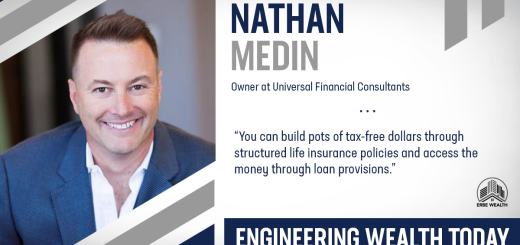You Need a Trust – Not Just a Will | William L. Carpenter
by Erbe Wealth · Published · Updated

William Carpenter, estate attorney at Gerash Steiner Blanton, discusses the importance of and common misconceptions about estate and trust planning.
Three Things You’ll Learn:
- Why you need a trust – not just a will.
- How beneficiaries and inheritance works.
- Life insurance and long-term care policy planning.
William “Bill” Carpenter, estate attorney at Gerash Steiner Blanton, discusses the importance of and common misconceptions, and questions people often have about wills, estate, and trust planning.
When people think estate planning, they often think it is only for the very wealthy. This is not true. Estate planning – not just having a will – is important for the protection of the loved ones you leave behind after death. Having a will does not protect against probate.
Bill explains what a trust is in the legal world, what it protects, and how to put it together.
Trusts are also important when it comes to medical treatment and decisions, especially when you are unable to make those choices in the moment – whether that be because of injury or death.
A properly drawn trust does nothing while you are still alive, but after death it protects your beneficiaries. It is about taking care of your children, more than yourself, Bill explains.
[19:32] “With a properly drawn trust, beneficiaries – children, grandchildren, great-grandchildren – never become owners of the assets. They remain beneficiaries. The magic of that is that anything you own can be taken away, by our enemies, can be split up by a divorce, and is subject to bankruptcy trouble. When you’re a beneficiary you get to use the enjoyment of the asset that is not at the risk of anyone else ever being able to touch it.”
There is a type of trust that is about protecting assets for yourself; however, in order to do this, you must give up your assets to someone else. Which, Bill says, isn’t necessarily worth it.
Bill explores estate taxes and exempt assets on a local and federal level for different kinds of trusts, including life insurance and irrevocable trusts. He highlights how different assets can be passed down with and without taxing for beneficiaries.
Along with life insurance, long-term care is another topic Bill broaches. He explains:
[29:30] “Long-term care costs a lot of money […] to buy a long-term care policy costs a lot of money. You never use it. That could be a huge waste. A lot of people give away all their assets, and wait five years, so that they can have Medicaid pay for a place they don’t want to be. None of those are good answers to the long-term care issue.”
Trusts and wills can be an uncomfortable subject, but it is a very necessary one if you hope to take care of your loved ones even in death.
Links
Pull Quotes:
“A properly drawn trust, when it passes assets to children will protect those assets from the children’s enemies—which may be the child themself.”
“The number one rule for life insurance is to replace the income of the deceased person that their family was depending on when they were alive.”













